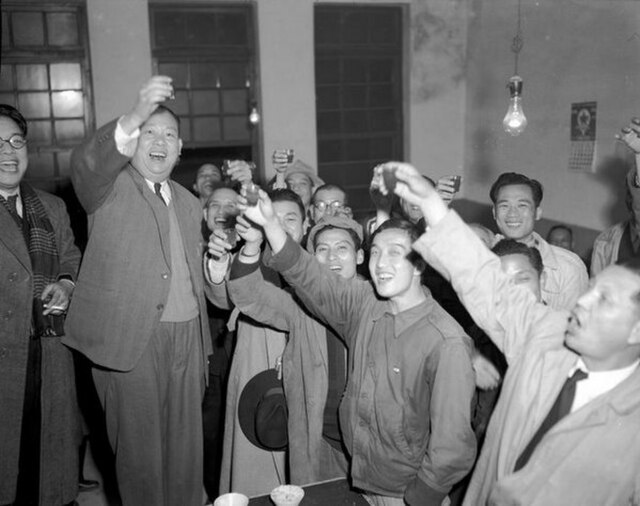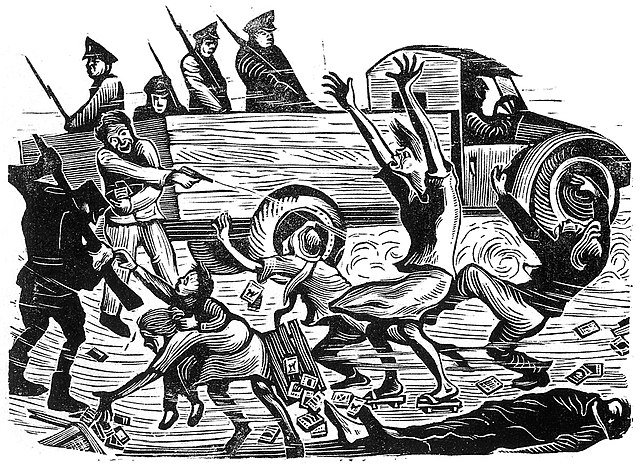Taiwanese nationalism is a nationalist movement which asserts that the Taiwanese people are a distinct nation. Due to the complex political status of Taiwan, it is strongly linked to the Taiwan independence movement in seeking an identity separate from China. This involves the education of history, geography, and culture from a Taiwan-centric perspective, promoting native languages of Taiwan such as Taiwanese Hokkien, Hakka, and indigenous languages, as well as reforms in other aspects. Taiwanese nationalism was described as 'anti-imperialist' in that it opposed Japanese imperialism before 1945, opposed Chinese imperialism in modern times, and supported its own Taiwanese identity, which was distinct from China.
Tangwai politicians in Taipei in 1951.
Wild Lily Movement in Taipei.
Taiwan Post Co. post office in Taichung.
KMT Chairman Lien Chan visited Mainland China in 2005 to oppose the Taiwan independence movement.
Taiwan independence movement
The Taiwan independence movement is a political movement which advocates the formal declaration of an independent and sovereign Taiwanese state, as opposed to Chinese unification or the status quo in Cross-Strait relations.
Woodcut print by Huang Rong-can, "The Terrible Inspection" describing the February 28 Incident massacre in 1947
"Terror In Formosa", a news article from The Daily News of Perth, reported the status in March 1947.
Banner displaying the slogan "UN for Taiwan"
An example of a "Taiwan passport", which is typically not accepted in place of the R.O.C. passport








